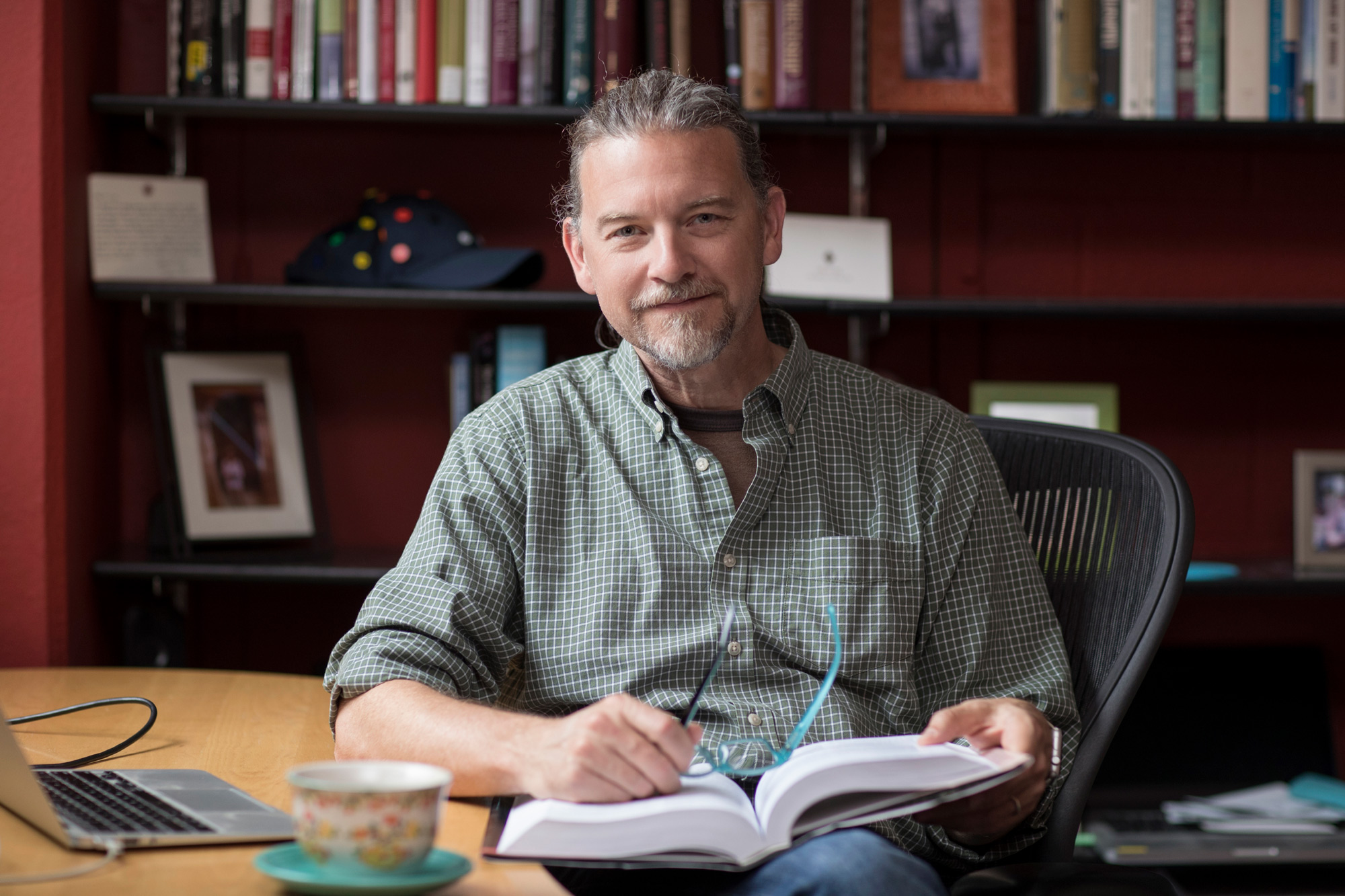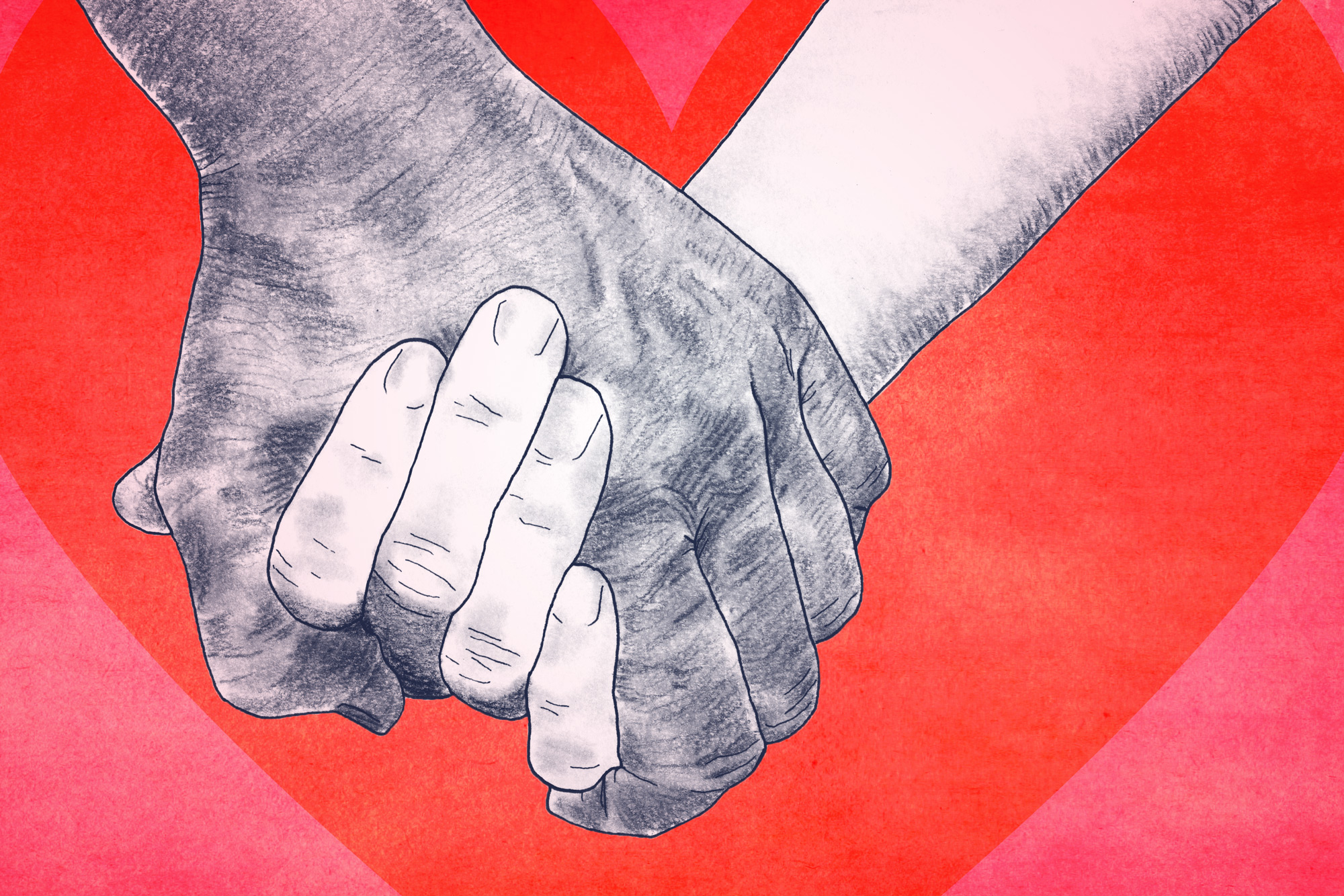Psychology professor James Coan leads a University of Virginia lab that explores how social relationships protect us against stress and keep us healthy. This semester, he is teaching a course called “Why We Hold Hands.”
In the course, undergraduate students are learning to understand how natural selection has shaped the human brain and body to be fundamentally social, and to consider how a human’s social nature affects health and wellbeing, among other things.

UVA psychology professor James Coan leads a lab that explores how social relationships protect us against stress and keep us healthy. (Photo by Dan Addison, University Communications)
Just in time for Valentine’s Day, UVA Today asked him to share what he has learned from his research on the neuroscience of emotional expression.
Q. Why do people hold hands?
A. People hold hands for many reasons, but if there is a single common denominator unifying them all, it’s probably a felt sense of security – a sense that we are not alone that brings with it the knowledge that we have a companion, a helper, a guide, another mind who knows about and is interested in ours.
We now know that humans are adapted to each other not unlike the way that salamanders are adapted to cool, dark damp environments. We are each other’s habitat. Because of this, unwanted isolation is dangerous. We seek signals from each other that we are together. When we lack those signals, our bodies go into a state of alarm that triggers a stress response. When we detect those signals, our brains and bodies can relax and move on to other concerns.
And our hands offer excellent, unambiguous signals of physical presence. It isn’t just the fact that we are touching, either. Our hands are suffused with dense sensory capabilities that afford detailed and unambiguous information about the things they touch, including each other. Our hands are our body’s way of exploring and manipulating the world – we reach out in the dark. And when we find another hand there, we know for certain that we aren’t alone.
Q. Do you know when this activity first began?
A. I don’t. There is some evidence that other species do something like what we call handholding.
According to the primatologist Frans de Waal, chimpanzees do it, although much less frequently and under more specific circumstances. He thinks chimps use something he calls “hand clasping” as part of a reconciliation ritual after conflict.
There is reason to believe we started using handholding a very long time ago, indeed.
Q. Is the practice a global one?
A. As far as anyone can tell, handholding is a human universal. This is significant for a lot of reasons, among them the fact that true human universals aren’t easy to identify.










